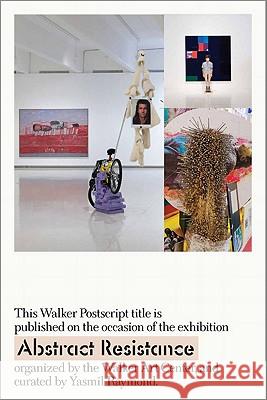Abstract Resistance » książka
Abstract Resistance
ISBN-13: 9780935640953 / Angielski / Miękka / 2011 / 96 str.
Abstract Resistance considers the metaphor of resistance as a political and compositional force defining the art of the past half-century. Starting with Michel Foucault's assertion that -where there is power, there is resistance, - it explores art made since World War II that has been shaped by traumatic historical events in complex ways. Rather than creating an explicit art of social protest, artists have responded to violence and upheaval with art that rejects the comfort of moral certainty. Such art withholds information and evades identification. Exhibition curator Yasmil Raymond provides an overview of the exhibition's themes and artworks; art historian Simon Baier traces the origins and development of nonobjective art through the writings of critics such as Charles Baudelaire and Meyer Schapiro; and philosopher Marcus Steinweg draws on the ideas of Theodor Adorno and others to provide a theoretical framework for artistic resistance.
True to its title, the exhibition Abstract Resistance considers the metaphor of "resistance" as a complex political and compositional force defining art of the past half-century. Starting with Michel Foucaults assertion that "where there is power, there is resistance," it explores art made since World War II that has been shaped by traumatic historical events in complex ways. Rather than creating an explicit art of social protest, artists have responded to violence and upheaval with a type of art that rejects comforting moral certainties. Such art is resistant to interpretation; it withholds information, it tends to evade identification, and certainly it protests interrogation.











